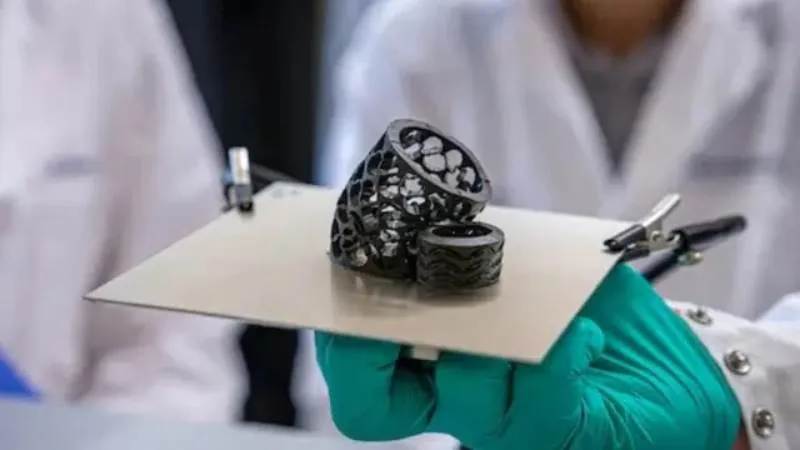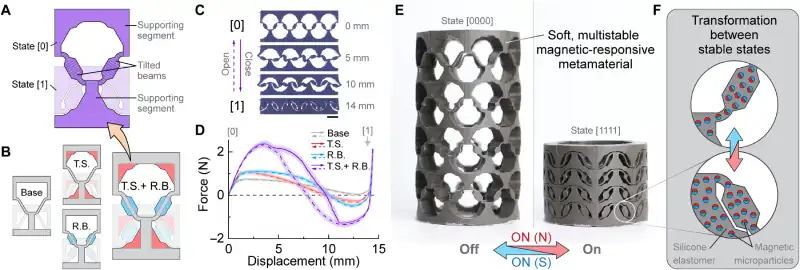Soft metamaterial that changes shape with magnets and withstands extreme conditions

Researchers at Rice and Utah universities have developed a new type of soft, multistable metamaterial capable of changing shape when exposed to magnetic fields and maintaining its new configuration even after the external stimulus is removed.
The study, published in Science Advances, shows that these structures made of silicone and magnetic microparticles can withstand mechanical stress, temperature variations, and even corrosive environments, such as gastric fluids. This robustness paves the way for applications in soft robotics, implantable biomedical devices, and ingestible drug delivery systems.
How metamaterials work

Unlike conventional materials, metamaterials are designed with specific geometries that give them unprecedented properties. In the case of the new design, the structural units are bistable: they have two stable forms between which they can alternate.
This feature allows the structure to be reconfigured remotely using magnetic fields, without the need for constant energy to maintain the new shape. More importantly, the material remains stable even under stress, such as compression, impact, or sudden temperature changes.
Resistance beyond expectations
In experiments, the metamaterials withstood compressions equivalent to more than 10 times their own mass, resisted water jets, and remained functional after exposure to temperatures between –20 °C and 100 °C. In another test, they survived extreme impacts and even immersion in simulated gastric fluid for a week, preserving their ability to transform.
These results are relevant to the medical field, as rigid structures often cause complications such as inflammation or ulcers. Because they are completely soft, the new metamaterials reduce this risk and can be applied, for example, in ingestible appetite control devices or reconfigurable stents for the treatment of gastrointestinal disorders.
Potential in robotics and biomedical engineering

In addition to medical applications, the technology has potential in soft robots capable of moving around or manipulating objects in confined spaces. Researchers also demonstrated prototypes of peristaltic pumps and magnetically controlled valves, which functioned even against the pressure of internal fluids.
According to the authors, the ability to program different levels of stability within the same structure allows for the creation of complex systems, such as reconfigurable antennas or instruments that can be deployed and activated remotely.
Further information: Greenwood, T. E., Elder, B., Hasan, M. N., Anklam, J., Lee, S., Teng, J., Wang, P., & Kong, Y. L. (2025). Soft multistable magnetically sensitive metamaterials. Science Advances, 11, eadu3749. https://doi.org/10.1126/sciadv.adu3749






